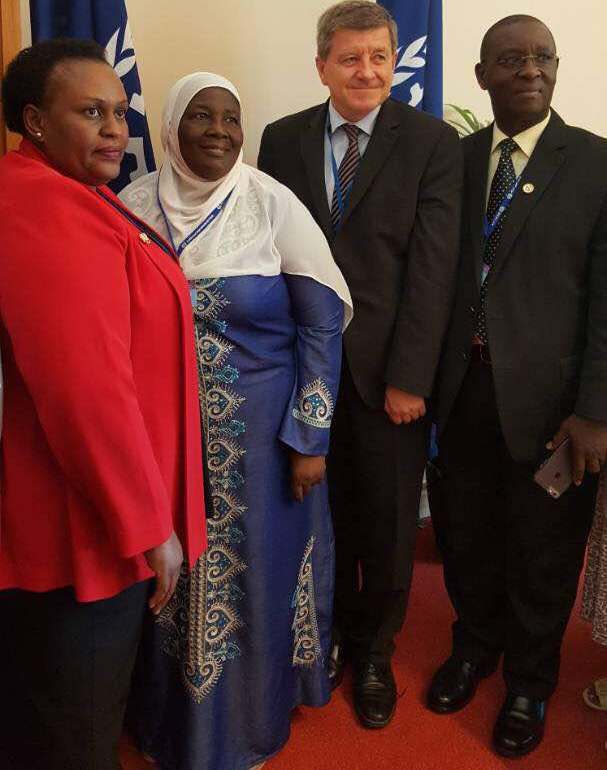In brief
- Taxes on luxuries like beer, cigarettes, gaming increased
- Development geared towards roads, industries
- Smokers, beer drinkers and gamblers to feel the pinch
Uganda’s 2017/2018 budget has this afternoon been presented to the nation by Finance minister, Hon. Matia Kasaija, today, Thursday, 8th June 2017 at the Kampala Serena Conference Centre.
The shs 29 trillion budget, which is hoped to deliver Uganda into middle-income status has seen sectors like electricity, oil and gas, ICT, education, health and agriculture receiving substantial funding.
This year’s budget was themed “Industrialisation for job creation” as part of the government’s vision to create more jobs for the citizens
Just like last year, at least five sectors continue to dominate allocations: works and transport, energy and mineral development, education, health, and security.
Biggest losers
Matia Kasaijja’s budget this afternoon didnt bear any good news for some Ugandans. The minister while delivering his budget said there will be a 60% increase on imported beer, and a 30% tax increase on beer material.
Smokers too and gamblers weren’t spared either with increase of excise duty on cigarettes.
Gaming houses and lotteries will also experience a 15% tax increase.
All these taxes mean prices of cigarettes, beer, gaming from casinos and lotteries will have to increase to the chagrin of most “happy” loving Ugandans.
While job seeking Ugandans should be hopeful. With government priotising industrialisation to create more jobs, more youth will have the opportunity to be employed.
Kasaijja assured the nation “The implication is that the government must create jobs for the youth in order to reduce the unemployment rate in the country,”
Development is number one priority
Works and transport has the biggest increment in the budget, at 21 per cent, compared to the previous year’s allocation. This underlines President Museveni’s insistence that the country “has to focus on infrastructure development”. The President said the same at last Tuesday’s state of the nation address.
The sector will receive Shs 4.6 trillion, up from the Shs 3.8 trillion it received in the 2016/17 financial year – representing the biggest jump of all allocations. The assumption with this allocation is that once roads are made, that will spur growth in everything else: agriculture, tourism, oil and gas, land value, and real estate which would in turn spur employment, government has argued.
Kasaijja added “The budget for 2017/18 prioritizes public infrastructure investments, which are necessary to facilitate private sector development and enhance the productive capacity of the economy.”
To expand its tax base, government seeks to formalise the largely informal sector and eliminate tax avoidance and evasion.
As part of development planning, the roads sector received increased funding. Uganda National Roads Authority, under Allen Kagina, is expected to be frugal with the way it spends money on projects.
While the sector had been receiving much of the budget in the last six years, up to Shs 4 trillion was stolen in the years between 2010 and 2015, according to a report from a commission of inquiry led by Justice Catherine Bamugemereire.
Energy, oil and minerals focus
The energy and mineral development sector received Shs 2.4 trillion 5% compared to the previous one, a 0.1 per cent jump, as government keeps tabs on an area that is expected to be the country’s economic driver for years.
Uganda is expected to start producing oil by 2020 and there has been a push by the president to see that the country’s mineral potential is mapped to give investors a better outlook.
The education sector got Shs 2.47 trillion, slightly above what it got last year. Most of the money will go towards dealing with the recurrent expenditure, with up to Shs 1.8 trillion going to clear wage and non-wage expenses, according to government projections. Only Shs 523 billion will go towards development expenditure.
The health sector got a cut of 0.3 per cent. The security sector also took a cut of up to 7.3 per cent compared to the money it got last year.
Agriculture, where more than three quarters of the population earns a living, got at least Shs 863bn, a 4.8 per cent increment from last year’s allocation.
Science and technology, which the Vision 2040 says will be the driver of the economy, will get Shs 67bn, the first time it is being allocated money as a separate entity. There is hope that this will spur innovation.
“The implication is that the government must create jobs for the youth in order to reduce the unemployment rate in the country,”
Science and technology, which the Vision 2040 says will be the driver of the economy, will get Shs 67bn, the first time it is being allocated money as a separate entity. There is hope that this will spur innovation.
Financing external debt
Meanwhile, Shs 725.6bn will be spent on interest on external debt. In total, interest payment will take 12 per cent of the budget, more than what was allocated to key sectors such as education, health and agriculture, underlining how burdensome debt has become.



